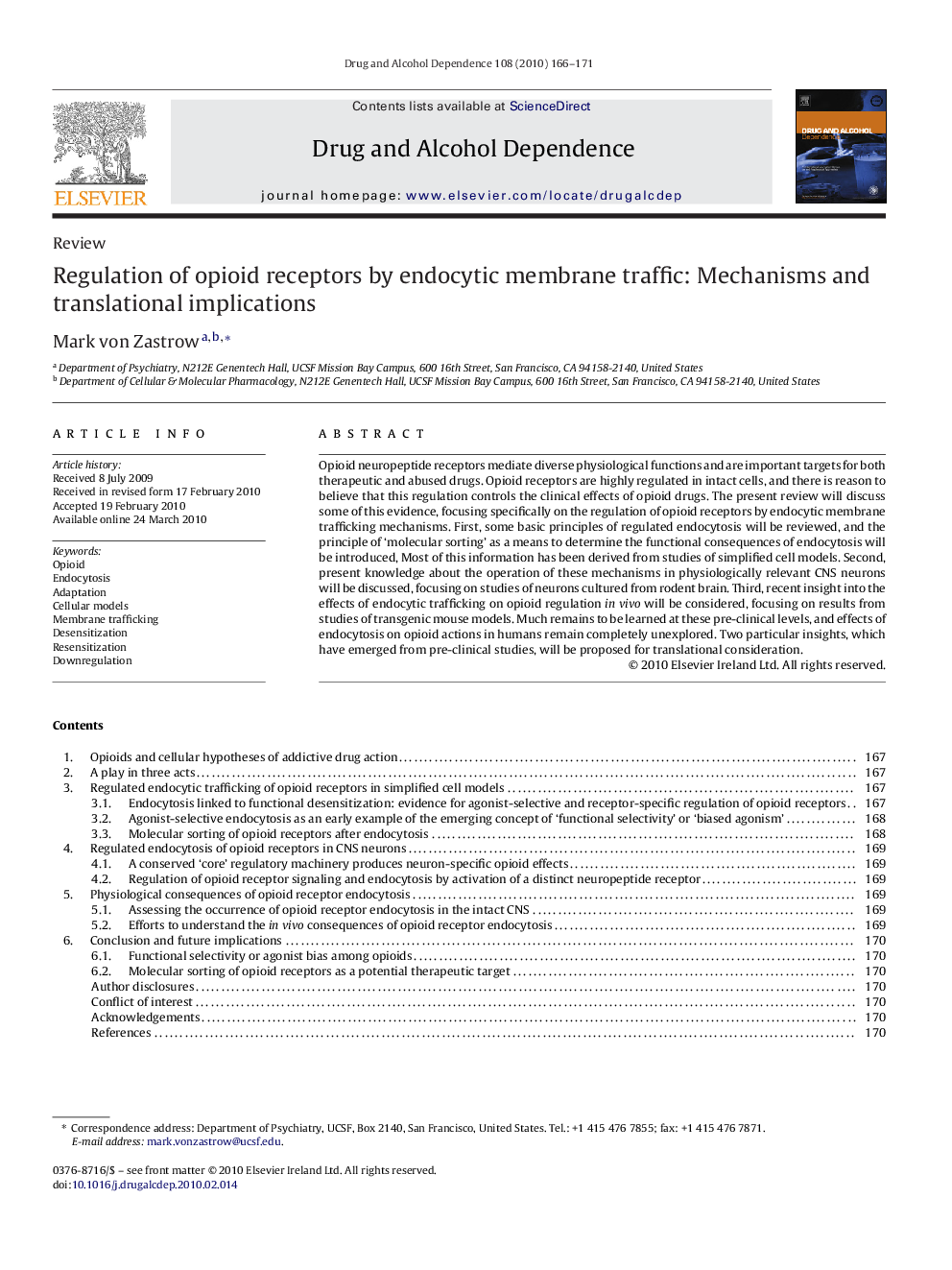| Article ID | Journal | Published Year | Pages | File Type |
|---|---|---|---|---|
| 1070380 | Drug and Alcohol Dependence | 2010 | 6 Pages |
Opioid neuropeptide receptors mediate diverse physiological functions and are important targets for both therapeutic and abused drugs. Opioid receptors are highly regulated in intact cells, and there is reason to believe that this regulation controls the clinical effects of opioid drugs. The present review will discuss some of this evidence, focusing specifically on the regulation of opioid receptors by endocytic membrane trafficking mechanisms. First, some basic principles of regulated endocytosis will be reviewed, and the principle of ‘molecular sorting’ as a means to determine the functional consequences of endocytosis will be introduced, Most of this information has been derived from studies of simplified cell models. Second, present knowledge about the operation of these mechanisms in physiologically relevant CNS neurons will be discussed, focusing on studies of neurons cultured from rodent brain. Third, recent insight into the effects of endocytic trafficking on opioid regulation in vivo will be considered, focusing on results from studies of transgenic mouse models. Much remains to be learned at these pre-clinical levels, and effects of endocytosis on opioid actions in humans remain completely unexplored. Two particular insights, which have emerged from pre-clinical studies, will be proposed for translational consideration.
